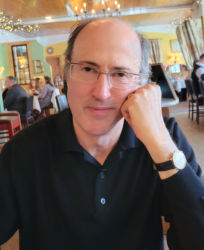Industry veterans with long memories will recall some early examples of supplement brands that tried to make the leap from exclusive distribution in the independent natural products channel to the mass market. Plus and Thompson come to mind. More recently, several other brands have followed the same path, with more or less the same results: losing their No. 1 position in the natural channel.
Those among you who may now be considering repositioning New Chapter (newly acquired by Proctor & Gamble) to a less prominent shelf in your store and moving up some other brand in its place may first want to ponder what author George Santayana meant when he wrote in his 1905 book, The Life of Reason, “Those who cannot remember the past are condemned to repeat it.”
Perhaps more relevant is the Chinese proverb, “Fool me once, shame on you. Fool me twice, shame on me.” In the case of the independent natural retail channel, fool me half-a-dozen times.
Look, let’s be honest with ourselves. How many of us, in Paul Schulick’s shoes, would not have made the same choice to cash in our chips? Yes, the noble thing to do would be to keep the brand a cottage industry. You could feel better about yourself. But the evidence suggests that original missions are usually overpowered by the lure of a big payday. And, the rationalizations for selling are not entirely without merit: you will serve a larger audience; there will be more health, to wit, Schulick’s plan to expand globally, now aided by the capital and distribution infrastructure of P & G.
Still, as an independent retailer, you are left with a strategic decision. And this is a good time to understand the difference between strategy and tactics. Tactics is deciding what product lines to promote on your end cap, at what discount. Strategy is deciding what lines to carry in the first place. It is strategy because what you decide here can and will affect how much control you have over your long-term economic future.
So, what should you do? Here’s something I wouldn’t do: Elevate the next-in-line brand telling me they’re going to support the natural channel exclusively. Umm…could you please put that in writing? Here’s the deal. You have no control or recourse if current management changes its mind. And as we can see, human nature being what it is, minds change more often than not.
Here’s something else that is obvious: you need brands. But needing brands and controlling your future are two different things. A store 100% reliant on brands exposes you without limit to the strategic whims of your vendors. Instead, introduce a measure of strategic control into your product mix; develop your own private label brand(s). Sure, this is more work than opening up a catalog and reordering. But so is scrambling to replace the sales from your former number-one supplement line every three to five years.
Yes, you need to continue to keep, promote, and cultivate strong relationships with your vendors’ brands. But you also need to look out for No. 1, your brand, and its long-term strategic interests. (Note to self: take-home point for next seminar; your store IS a brand.) Ignore this most recent wake-up call and you may begin feeling like Bill Murray in Groundhog Day. WF
 Jay Jacobowitz is president and founder of Retail Insights®, a professional consulting service for natural products retailers established in 1998, and creator of Natural Insights for Well Being®, a comprehensive marketing service designed especially for independent natural products retailers. With 35 years of wholesale and retail industry experience, Jay has assisted in developing over 1,000 successful natural products retail stores in the U.S. and abroad. Jay is a popular author, educator, and speaker, and is the merchandising editor of WholeFoods Magazine, for which he writes Merchandising Insights and Tip of the Month. Jay also serves the Natural Products Association in several capacities. He can be reached at (800)328-0855 or via e-mail at jay@retailinsights.com.
Jay Jacobowitz is president and founder of Retail Insights®, a professional consulting service for natural products retailers established in 1998, and creator of Natural Insights for Well Being®, a comprehensive marketing service designed especially for independent natural products retailers. With 35 years of wholesale and retail industry experience, Jay has assisted in developing over 1,000 successful natural products retail stores in the U.S. and abroad. Jay is a popular author, educator, and speaker, and is the merchandising editor of WholeFoods Magazine, for which he writes Merchandising Insights and Tip of the Month. Jay also serves the Natural Products Association in several capacities. He can be reached at (800)328-0855 or via e-mail at jay@retailinsights.com.
Published in WholeFoods Magazine, May 2012, online 3/23/12










